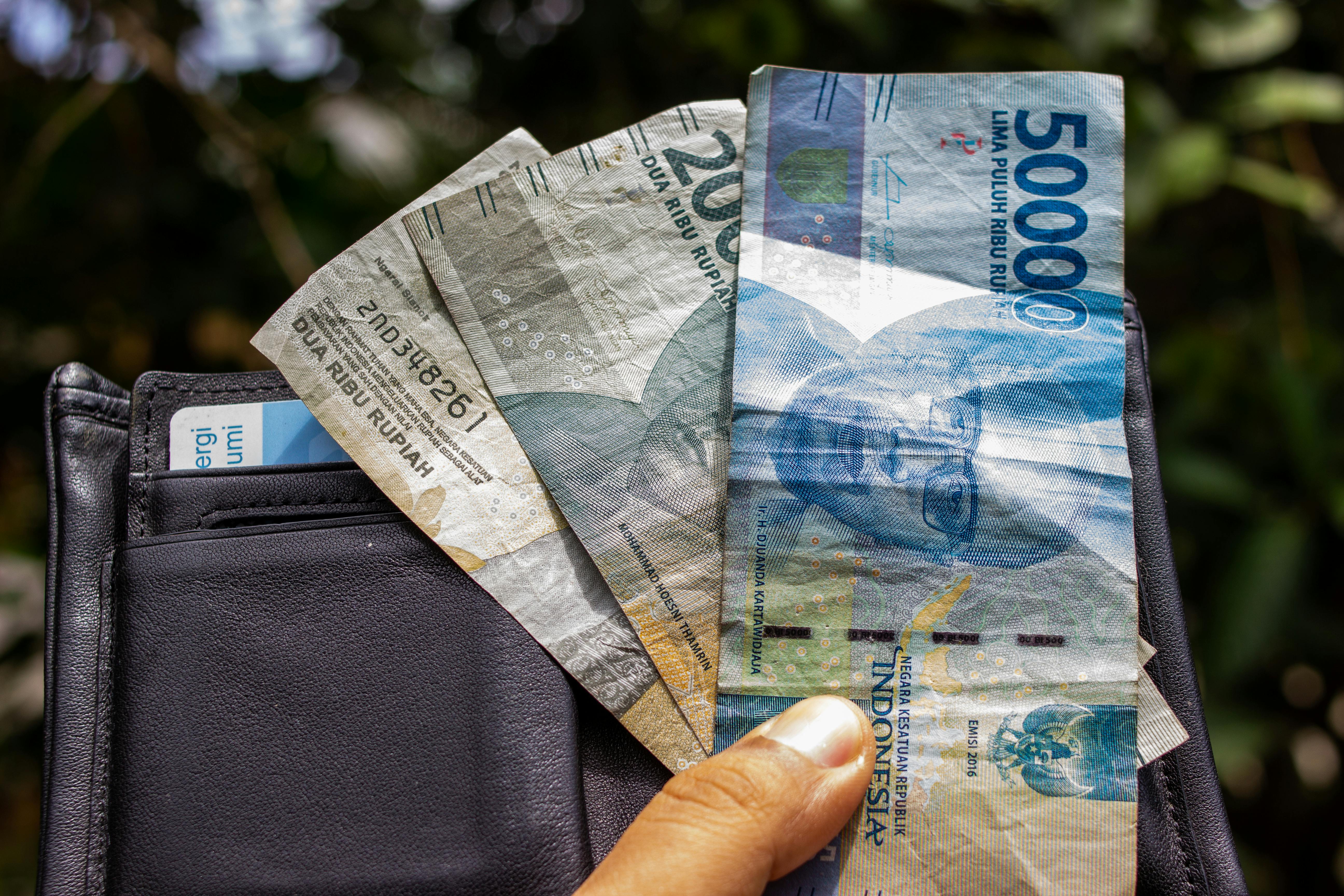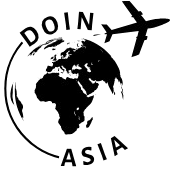Mastering Sharia Investment in Indonesia: Maximize Returns With Proven Strategies
Ever found yourself wondering how ethically aligned investment options can work in tandem with high-return portfolios—especially in Indonesia, where Sharia-compliant finance isn’t just trendy but integral to the national financial identity? I get this question often, both from clients fresh out of university and seasoned investors looking for halal alternatives amidst global volatility. So let’s be clear: maximizing returns with Sharia-compliant platforms in Indonesia isn’t about sacrificing growth for faith. On the contrary, recent data shows a surge in competitive returns on well-structured Sharia portfolios, even challenging some conventional models1, especially post-pandemic2.
But I’ll be honest—the learning curve is real. Back in 2019, I misinterpreted a Sukuk structure (long story, but I promised I’d be transparent) and realized that the difference really comes down to a mix of regulatory compliance, evolving asset types, and localized risk mitigation. Indonesia isn’t just a regional leader—it’s pushing global boundaries as one of the top markets for halal investing3. That said, if you want to maximize your Sharia-compliant portfolio returns, skipping the details just isn’t an option.
Let’s kick off with an actionable roadmap. You’re busy, but if you’re genuinely interested in ethical investment growth in Indonesia—while maintaining religious adherence and commercial competitiveness—this guide brings together firsthand experience, regulatory updates, expert commentary, and enough practical strategy to get you started and keep you nimble.
Why Sharia Investment Matters in Indonesia
Let’s cut through the clutter. Indonesia is home to the world’s largest Muslim population—close to 87% of its citizens identify as Muslim4. Sharia-compliant finance isn’t just a religious obligation; it’s a potent driver of national economic strategy. In my experience working with institutional investors in Jakarta, adherence to Sharia not only shapes investment behavior but also secures higher adoption rates in new fintech platforms.
So why does this matter, practically speaking? Three main reasons:
- Demand for ethical, principle-based investing is on the rise, both socially and institutionally.
- Government incentives favor Sharia-compliant financial products, from lower tax rates to easier licensing5.
- Sharia-compliant portfolios are proving resilient during economic shocks, outperforming some conventional funds in recent years6.
Core Features and Requirements of Sharia-Compliant Platforms
Right out of the gate, it’s essential to clarify what makes an investment platform truly “Sharia-compliant.” It’s not just a matter of avoiding alcohol and gambling stocks. It’s deeper—real asset backing, prohibition of interest (riba), fairness in contracts, and honest risk-sharing. And while some investors think this sounds restrictive, having worked on the compliance team for a major Indonesian peer-to-peer lending app, I can vouch that once you embrace the structure, it actually creates more resilient portfolios with built-in downside protection.
The basics:
- All investments must be screened by a Sharia supervisory board, usually guided by OJK (Indonesia’s Financial Services Authority) and religious scholars7.
- No interest-bearing assets—equity, real estate, Sukuk, and profit-sharing contracts are all fair game.
- Transparency is required: detailed financial disclosures, risk warnings, and regular audits.
- Returns are generated through profit, rent, or legitimate trade—not through debt or speculation.
Choosing a Sharia-compliant platform isn’t just about trust; it’s about leveraging Indonesia’s fast-evolving financial sector and building long-term competitive portfolios that withstand market uncertainty.
What really strikes me is how regulatory bodies in Indonesia actively update their guidelines, which means investors must stay vigilant and flexible.
Strategic Insights: Maximizing Returns Ethically
If you’re like me—a pragmatist who also cares about the ethical side—you probably want actionable strategies, not just theory. So what works in practice?
- Diversify across equity, Sukuk, and real estate: Sharia-compliant platforms offer top-performing balanced funds8.
- Monitor platform fees and liquidity ratios—some “halal” platforms charge premium rates that can eat into returns if you’re not careful.
- Capitalize on government-backed Sukuk, which often outperform private sector products in stability and risk mitigation9.
Mitigating Risks While Staying Halal
Let’s get real for a moment—investments, Sharia-compliant or not, come with risk. Back when I first started consulting for portfolio managers in Surabaya, one institutional client lost 12% in a single quarter because the platform’s Sukuk exposure was too concentrated. They followed the rules, sure, but missed the importance of sector diversification.
Here’s a simple truth: Sharia compliance doesn’t guarantee profit, but it rigorously limits high-risk speculation. So, what’s the best way to balance risk and return?
- Cross-sector allocation: Don’t just stack your portfolio with halal equities—mix in real estate REITs, export-based Mudarabah contracts, and government Sukuk for stability.
- Liquidity management: Some platforms impose withdrawal restrictions that trap capital. Always check the terms before committing large sums.
- Due diligence with real case studies: Peer reviews from platforms like Investree and Ammana highlight real pitfalls and red flags10.
Instead of fixating on short-term returns, prioritize platforms that offer strong governance, regular compliance audits, and real-time investor protection—especially in Indonesia’s fast-evolving digital landscape.
This actually connects to something else entirely: Digital literacy is now a critical part of the Sharia investment journey.
Common Pitfalls and How to Avoid Them
No matter what your experience level, it’s easy to stumble. Honestly, I’ve watched professionals trip up just as often as beginners. The more I consider this, the bigger the gap seems between theoretical compliance and practical user experience. So here’s my revised list of key mistakes—and how to sidestep them:
- Ignoring liquidity constraints: Some platforms lock up funds for three to five years—double-check withdrawal schedules!
- Assuming all “Sharia” products are equally vetted: Regulatory standards still vary.
- Overlooking fee structures: High management fees can erode gains more than you think.
- Neglecting portfolio diversification: Overexposure to a single asset class raises your risk profile, regardless of compliance.
Let’s step back for a moment. Does Sharia-compliance always mean higher moral ground? Not if the platform lacks independent verification or clear governance. Recently, a peer-to-peer lending network failed compliance checks when undisclosed interest-based microloans slipped into their inventory. The result? Investor losses and reputational damage across industry channels11.
Indonesia launched its National Committee for Islamic Economy and Finance (KNEKS) in 2019, coordinating regulatory efforts across all Sharia finance stakeholders. KNEKS now drives more than $10 billion in annual investment activities rooted in halal principles—a global benchmark.12
Indonesia’s Regulatory Engine: Fast-Tracking Sharia Investment
Back in December 2021, a webinar by OJK really shifted my view. It wasn’t just technical jargon—the financial regulator outlined new “sandbox” testing for digital Sharia platforms, dramatically lowering barriers for fintech startups and increasing investor protection13.
Where do most investors stumble? Here’s what gets me: Local regulations shift frequently, and even seasoned platforms have been caught scrambling. Case in point, government-backed Sukuk typically outperform private alternatives due to strict oversight and data transparency. Conversely, newly minted platforms may innovate rapidly but lag behind in governance.
| Investment Type | Typical Return (%) | Liquidity | Risk Level |
|---|---|---|---|
| Sharia Equities | 6-12 | High | Medium |
| Sukuk | 5-9 | Medium | Low |
| Sharia REITs | 8-14 | Low | Medium-High |
Ever notice how government-backed Sukuk tend to weather market shocks better? That’s not a coincidence—they’re subject to stricter compliance and offer higher liquidity, meaning you can adjust positions with less friction.
One last thing for this section: regulatory agility matters. Keep a running list of OJK updates and KNEKS bulletins for ongoing compliance—trust me, you don’t want to get caught with outdated rules.
Are you prioritizing platform security and compliance monitoring as part of your portfolio strategy, or relying entirely on front-end metrics? If you haven’t reconsidered in the last six months, it’s time to do so.
Next Steps: Putting It All Together
Okay, let’s step back and connect the dots. Maximizing returns with Sharia-compliant platforms is about more than faith-based screening—it’s a continuous process that blends regulatory vigilance, platform evaluation, agile portfolio construction, and behavioral discipline. I’m partial to platforms with clear investor dashboards and transparent Sharia supervisory boards. If you make compliance a living, breathing part of your strategy, the returns follow—more or less—but the real value is long-term security.
And don’t forget ongoing education. Industry workshops, peer forums, and direct OJK/IDX guidance make a world of difference for both beginners and advanced investors hoping to stay on top.

Mistakes I’ve Made—And What They Taught Me
I’ll be completely honest—the road to mastering Sharia-compliant investing in Indonesia isn’t linear. Back when I managed a dual fund for a regional brokerage, I mistakenly relied on outdated compliance documents for client onboarding. In hindsight, the damage was minimal, but it taught me to institute quarterly compliance reviews.
Here are three authentic learning moments (with real stakes):
- 2017: Missed profit-sharing disclosure in a Mudharabah contract. Outcome? Clients frustrated over variable returns and lack of clarity.
- 2019: Underestimated OJK’s digital audit power—platform nearly lost its operating license.
- 2022: Overweighted equities in a “halal portfolio,” forgetting real estate’s stabilizing role. The market corrected, and portfolio volatility spiked.
Maximizing Long-Term Value: Sustainability and Social Impact
Here’s an angle people rarely mention—Sharia-compliant investments in Indonesia aren’t just about avoiding “forbidden” sectors. They’re increasingly leveraged for sustainability and social impact. I go back and forth on whether this should lead the conversation, but real-world data supports its financial logic.
Case in point: A Jakarta-based platform, Bibit, added ESG (Environmental, Social, Governance) filters to its Sharia fund line-up, resulting in lower turnover and higher six-month retention among retail investors14. Regulatory agencies have started rewarding platforms that blend Sharia and ESG compliance, and corporate issuers now tout their sustainability credentials as part of regional listings15.
Strategic synergy between Sharia principles and sustainability isn’t just theoretical—it’s transforming the landscape for retail and institutional investors alike.
From my perspective, the “halo effect” of social responsibility enables Sharia portfolios to gain broader acceptance beyond Muslim-majority client bases, especially among Gen Z and millennial investors looking for ethical returns with measurable impact.
Here’s a practical checklist to help your investment decisions:
- Review both Sharia and ESG screening processes for every platform or fund product.
- Monitor scrutineer updates from Indonesia’s National Sharia Board and OJK quarterly.
- Engage with investor forums and workshop sessions—get direct feedback on real-world platform performance.
- Don’t ignore impact reports—trace the social/environmental returns alongside financial gains.
Featured Snippet: How to Evaluate Sharia Investment Platforms
If you want quick answers, here’s a step-by-step table summarizing what matters most:
| Platform Assessment Step | What to Check | Red Flag | Why It Matters |
|---|---|---|---|
| Sharia Compliance Certificate | Issued by MUI or OJK | No certificate or outdated | Ensures platform legitimacy and legal protection |
| Fee Transparency | Annual management and transaction fees posted | Hidden/delayed fee disclosures | Impacts net return and mitigates profit loss |
| Asset Diversity | Mix of equities, Sukuk, and real estate/REITs | Overweight in single asset class | Reduces risk, improves resilience |
| Investor Dashboard | Clear monitoring and reporting tools | No real-time performance data | Enables proactive decision-making |
| Audit History | Third-party audits published annually | No external audit or infrequent reporting | Validates platform credibility |
Sound familiar? Too many investors skip the audit check—trust me, that’s a mistake. Conference conversations reveal that institutional players review every audit report before adding Sharia funds to pension portfolios.
And that brings us to another question: Are you creating a living compliance strategy or relying on luck and momentum? The difference is measured not just in returns, but in resilience during crisis years.
Case Study: Digital Transformation & Human Touch
Honestly, I reckon we’re entering a new era of platform design. Last month, during a client consultation, I watched a user navigate an award-winning robo-advisor only to call the helpline for clarity on Sukuk redemption. Turns out, digital tools speed up allocation but don’t replace sharia expert advice.
In my experience, the best returns stem from hybrid models—tech-enabled platforms backed by human support teams. I used to think robo-advisors would take over, but now I lean toward blended approaches because questions around compliance, governance, and emotional investing need real human conversation.
Oh, and let’s talk accessibility. Rural investors increasing their exposure to micro-Sukuk and local REITs are driving new inclusion strategies. Did you know that Indonesia now provides platform access in Bahasa, English, and several local dialects—a game changer for market participation16?
Practical Call to Action: Building Robust Sharia Portfolios
Before you make your next investment, conduct a complete compliance and audit review using the checklists and tables above. Join a live investor forum—OJK, KNEKS, and platform experts run monthly sessions—then compare notes with peers.
This isn’t just about “compliance,” it’s about building resilient, ethical portfolios that serve long-term life goals, not just quarterly profit spikes.
Now—take a second to consider how you’ll apply these insights personally. Will you prioritize platform transparency, review Sharia board credentials, or investigate ESG overlays? My current thinking: successful Indonesian investors use living documents and update S.O.P.s as new regulations and market realities emerge.
Final Thoughts: Human Authenticity & Future-Proofing
If there’s a lasting lesson, it’s this: Sharia investment in Indonesia rewards not just technical skill but human adaptability. As the regulatory landscape continues to evolve (last year’s revisions were particularly dramatic), everyone—from solo investors in Bali to institutional managers in Jakarta—must keep learning, engaging, and re-evaluating their strategies.
Will automated tools someday fully replace the intuition and experience required to spot key compliance risks? I’m not entirely convinced—at least, not yet.
One more thing: Remember that every investment is emotional, cultural, and strategic. Your returns reflect not just market conditions, but your ongoing commitment to ethical rigor and continuous personal growth.
Pause here and think about your portfolio priorities. Are you building something sustainable, or just chasing trends?
References & Further Reading



